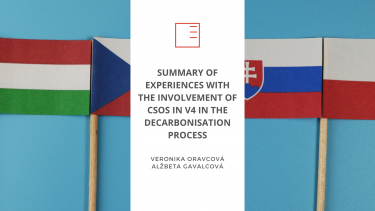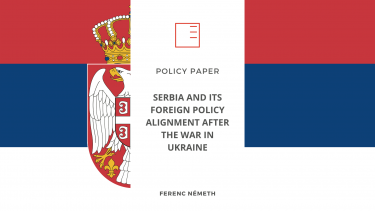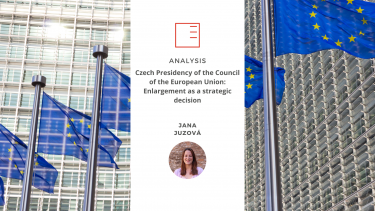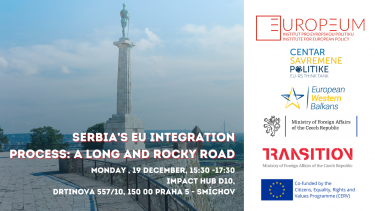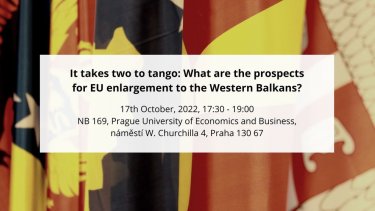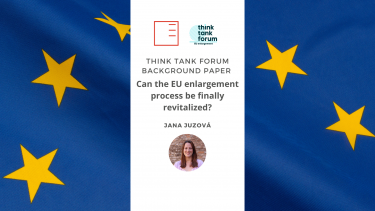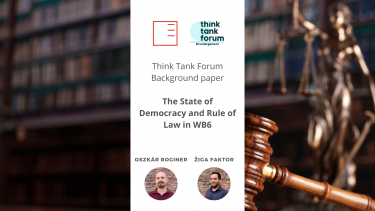SUMMARY OF EXPERIENCES WITH THE INVOLVEMENT OF CSOS IN V4 IN THE DECARBONISATION PROCESS
The project is focused on the examination of the role of non-governmental organizations in the process of decarbonization of coal regions in V4 countries (Czech Republic, Hungary, Poland, Slovakia). The aim of the project is to describe the best and worst practices of the individual processes for Serbia, who awaits the transformation of its energy mix, largely based on coal. The examined V4 countries have had a slightly different share of coal in their energy mix, while the largest one being in Poland and the second largest one in the Czech Republic, followed by Hungary and Slovakia. There are many similarities and differences in their takes on decarbonisation, thus providing different range of experiences.
Show more PDF

SUMMARY OF EXPERIENCES WITH THE INVOLVEMENT OF CSOS IN V4 IN THE DECARBONISATION PROCESS
Projekt je zaměřen na zkoumání role nevládních organizací v procesu dekarbonizace uhelných regionů v zemích V4 (Česká republika, Maďarsko, Polsko, Slovensko). Cílem projektu je popsat nejlepší a nejhorší praxi jednotlivých procesů pro Srbsko, které čeká transformace jeho energetického mixu založeného z velké části na uhlí. Zkoumané země V4 mají mírně odlišný podíl uhlí ve svém energetickém mixu, přičemž největší je v Polsku a druhý největší v České republice, následuje Maďarsko a Slovensko. V jejich přístupu k dekarbonizaci existuje mnoho podobností i rozdílů, a poskytují tak různou škálu zkušeností.
Show more PDF

Policy Paper | Serbia and Its Foreign Policy Alignment after the War in Ukraine
Ferenc Németh, a researcher on the politics, security and integration of the Western Balkans, has written a policy paper under the project Think Visegrad in Brussels. In it he examines Serbia's foreign policy towards the European Union after the Russian invasion of Ukraine.
Show more PDFAnalysis: Czech Presidency of the Council of the European Union: Enlargement as a strategic decision
Our senior researcher Jana Juzová has written an analysis in which she describes the fact that EU enlargement policy and the EU's south-eastern and eastern neighborhood represent some of the most important areas of Czech foreign and European policy in the last two decades.
Show more PDFAnalýza: České předsednictví v Radě Evropské unie: Rozšíření jako strategické rozhodnutí
Naše seniorní výzkumná pracovnice Jana Juzová napsala analýzu, ve které popisuje o tom, že politika rozšiřování EU a jihovýchodní a východní sousedství EU představují jedny z nejvýznamnějších oblastí české zahraniční a evropské politiky posledních dvou desetiletí.
Show more PDFINVITATION | Serbia’s EU integration process: A long and rocky road
We would like to invite you for a public discussion and screening of a documentary on Serbia’s EU integration process. The debate will take place on Monday 19 December, 15:30 - 17:30; at Impact Hub D10 in Prague.
Show more
TN Live: PM Fiala at the leaders' meeting in Albania
The head of our Brussels office, Žiga Faktor, appeared on TN Live to comment on the EU-Western Balkans Summit.
Show more
It takes two to tango: What are the prospects for EU enlargement to the Western Balkans?
We would like to invite you to the debate "It takes two to tango: What are the prospects for EU enlargement to the Western Balkans?", which will take place on 17.10. at 17:30 on the premises of the University of Economics in Prague in room NB 169 (the Rector's meeting room). Address: Churchill 4, Prague 130 67.
Show more
Background Paper Think Tank Forum | Can the EU enlargement process be finally revitalized?
This article was written as background material for a panel discussion at the Think Tank Forum: EU Enlargement. The author of the article is senior researcher Jana Juzová. In the article, she discusses, for example, whether the war in Ukraine will speed up the accession negotiations of the Western Balkan countries to the EU.
Show moreBackground Paper Think Tank Forum | The State of Democracy and Rule of Law in WB6
This article was written as background material for a panel discussion at the Think Tank Forum: EU Enlargement. The authors of the article are Oszkár Roginer, Project Manager, and Žiga Faktor, Head of our Brussels office. In the article, the authors discuss, among other things, elections, political pluralism, civil society, media, and fundamental rights in the Western Balkan countries.
Show more

Staroměstské náměstí 4/1
Prague 1 - Staré Město
110 00
tel.: +420 212 246 552
email: europeum@europeum.org
https://www.europeum.org

